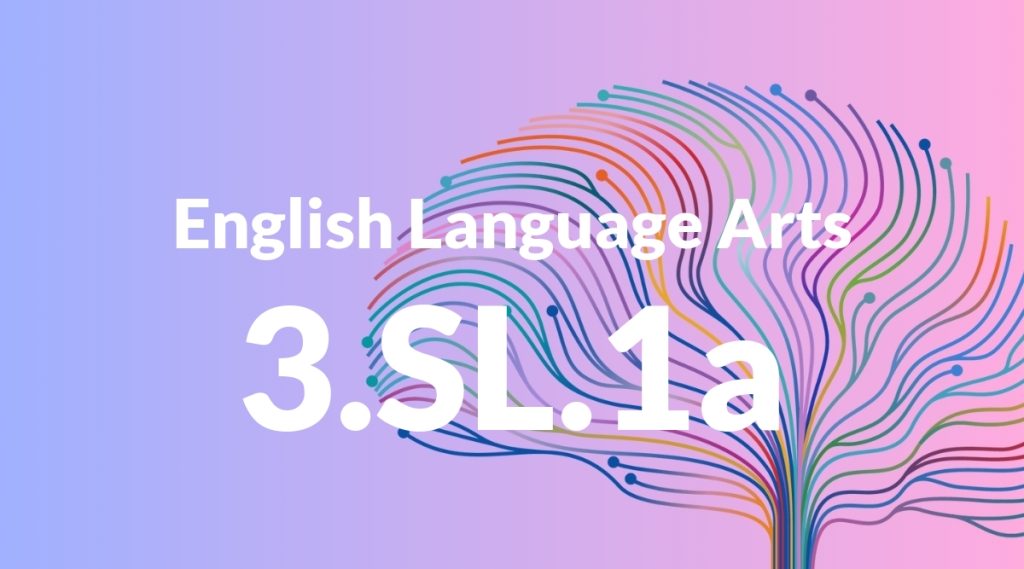Standard: 3.SL.1a – Come to discussions prepared, having read or studied required material; explicitly draw on that preparation and other information known about the topic to explore ideas under discussion.
Grade level: Grade 3
Subject: English Language Arts
Domain: Speaking & Listening
Teacher Overview
This standard emphasizes the importance of being prepared for discussions by reading or studying required materials. It is crucial for developing students’ abilities to engage thoughtfully and meaningfully in conversations, an essential skill in both academic and real-world contexts. Students should have foundational reading comprehension skills and the ability to summarize key ideas from texts.
After mastering this standard, students will be better equipped to participate in more complex discussions and collaborative activities, enhancing their overall communication skills.
Common Misconception 1
Some students may believe that simply reading the material is enough for preparation. This is incorrect because true preparation involves not only reading but also understanding and thinking critically about the material.
Intervention 1
Encourage students to take notes and ask questions about the material as they read. This can help deepen their understanding and make their contributions to discussions more meaningful.
Common Misconception 2
Another common misconception is that participation means just speaking up. This is incorrect because effective participation also involves active listening and responding to others’ ideas.
Intervention 2
Use structured discussion formats where students are required to respond to their peers’ comments. This encourages active listening and thoughtful engagement.
Prerequisite Knowledge
Students should be able to read and understand grade-level texts, summarize key points, and have basic listening and speaking skills.
Subsequent Knowledge
Students will develop skills in critical thinking, effective communication, and the ability to engage in collaborative discussions.
Instructional Activities
- Group discussion on a book chapter
- Partner sharing on a topic
- Role-playing different viewpoints
- Creating discussion questions
- Summarizing discussion points




